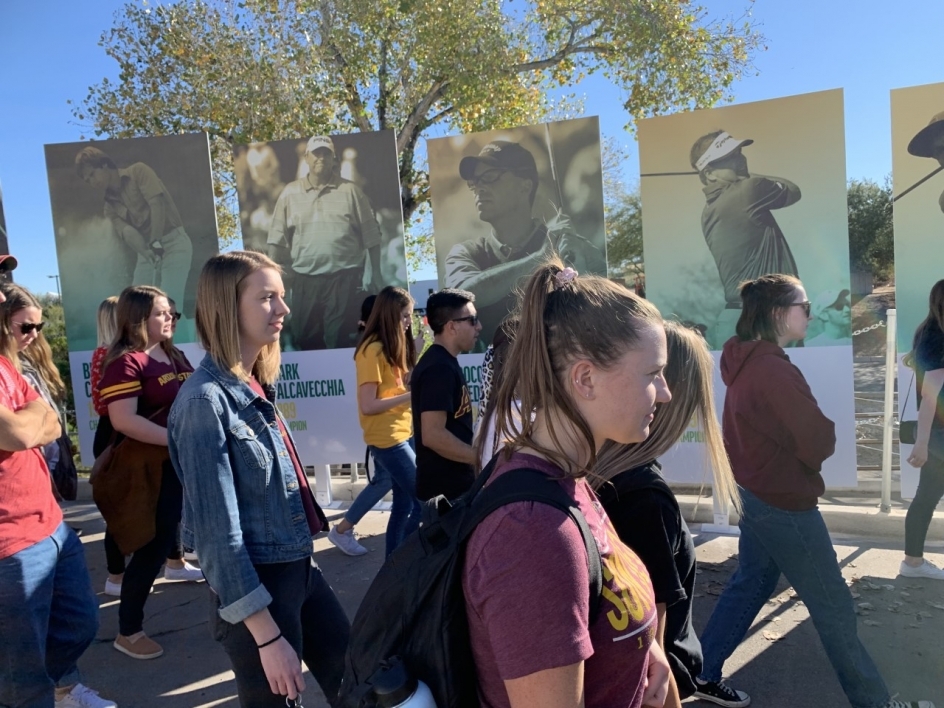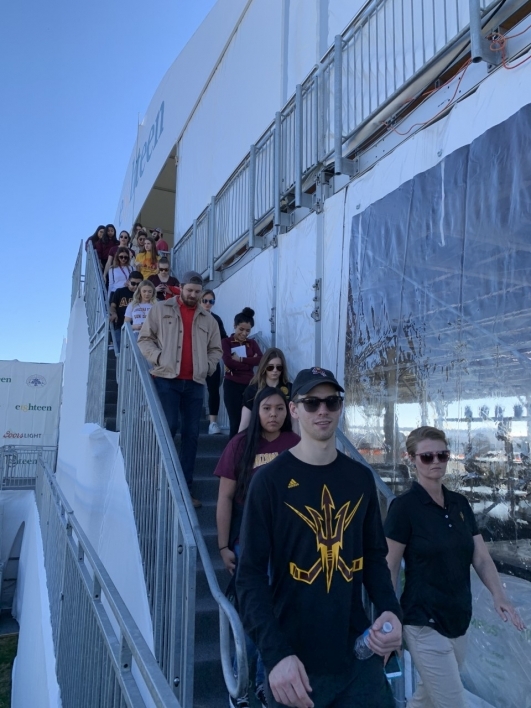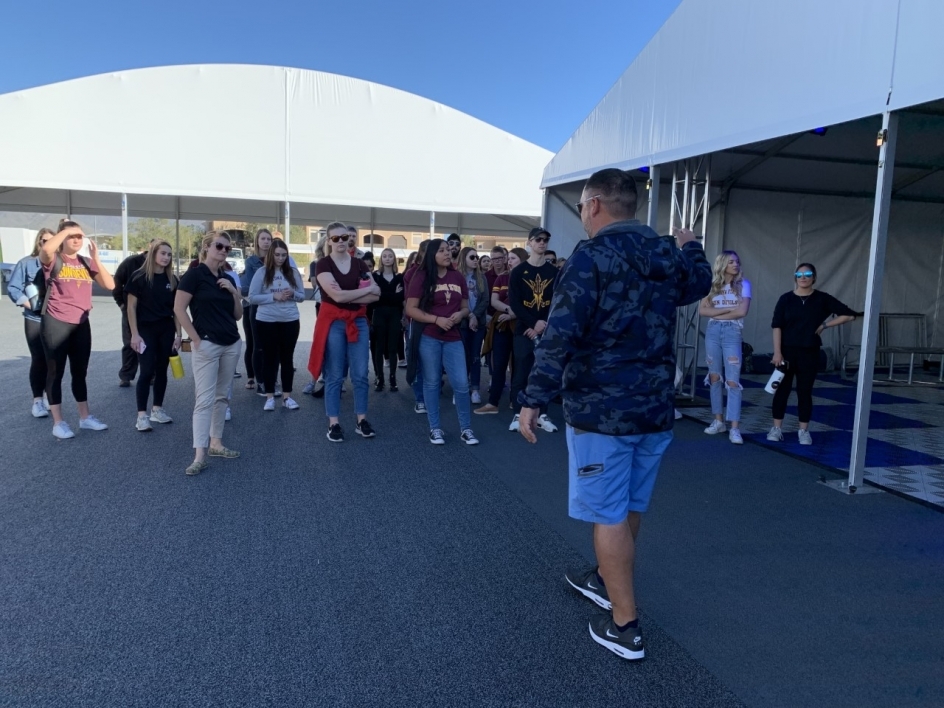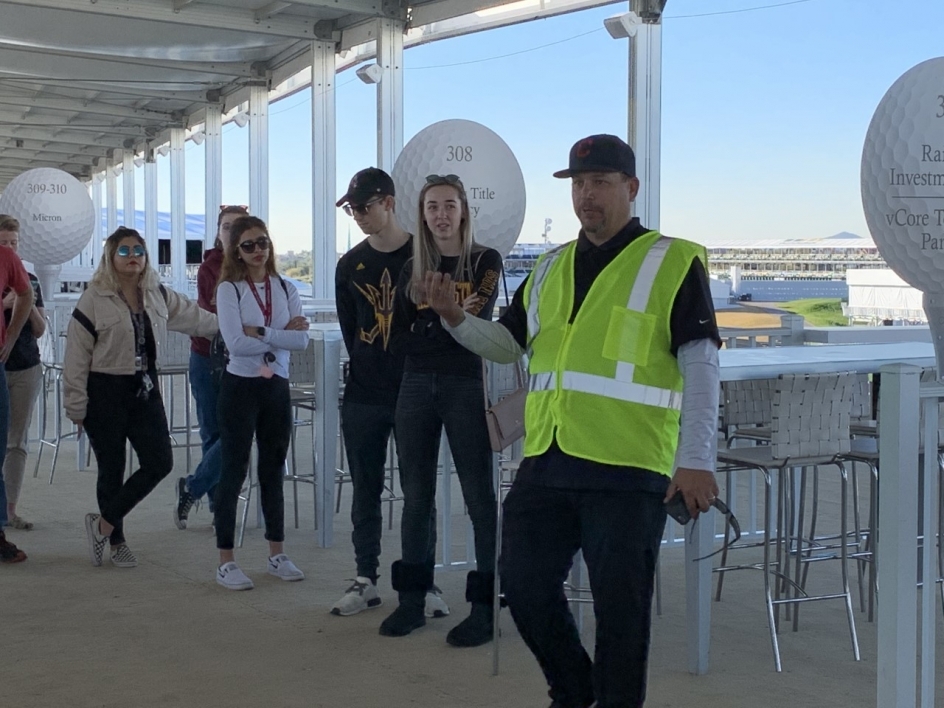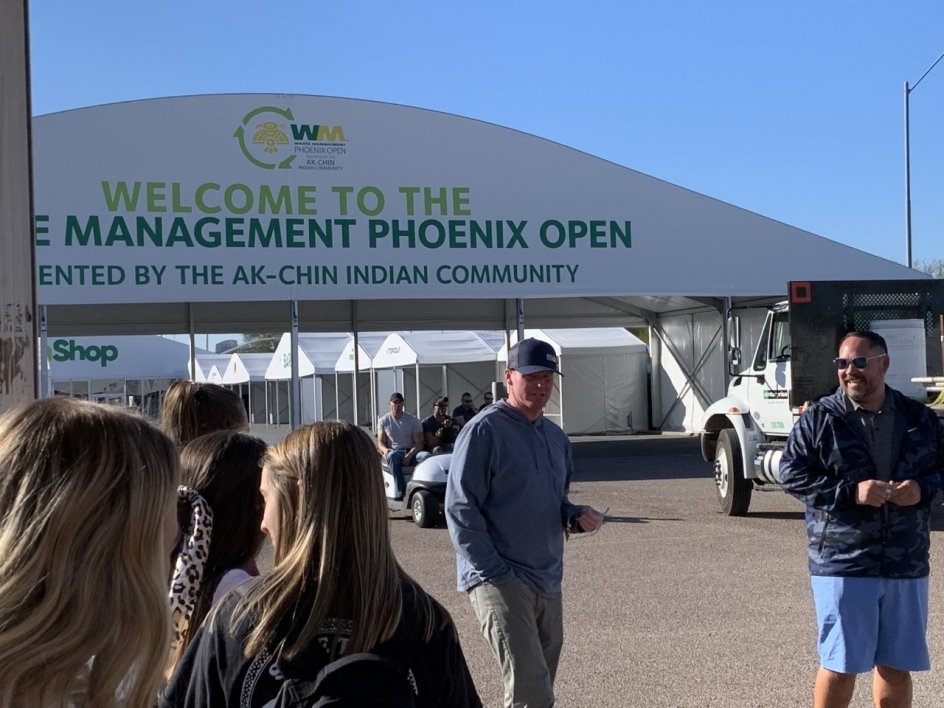ASU’s special event management students take part in the 'Greatest show on Grass'

ASU students and faculty member Erin Schneiderman on the 18th hole at the Waste Management Phoenix Open.
This tournament has it all: the biggest names in golf during the day and the biggest names in entertainment at night.
More than $147 million donated to charities in the Waste Management Phoenix Open's 84-year history. A build-out of grandstands, security magnetometers, hospitality skyboxes. Parking logistics, volunteer management, a commitment to sustainability through zero waste initiatives, social media impressions and so much more.
When Arizona State University's special event management students were offered an opportunity to get involved in the largest golf tournament in the world, they didn’t waste any time.
On Thursday, Jan. 23, about 60 students were treated to a behind-the-scenes tour of the TPC Scottsdale golf course and auxiliary venues just days before it would open to the public — an estimated attendance of 750,000 patrons. Students met with representatives from the Thunderbirds, the charitable organization that produces the tournament and associated events; ProEm Event Services, which handles the infrastructure, safety and security; and M Culinary, which supports the hospitality venues with food and beverage.
Students were welcomed by Tim Woods, 2020 tournament chairman, who offered appreciation for those students who would be returning the following week to volunteer their time. He told the group that the Thunderbirds were excited to surpass the $150 million charitable donation mark this year, an incredible accomplishment over the 85-year history of the tournament.
Next, Brady Castro, principal at Pro Em National Event Services, led students on a tour of the course focusing on ticketing, types of tenting, hospitality and sponsorship.
“Every component of the open focuses on ways to maximize giving through sponsorship,” Castro said. “The more we can sell to companies interested in becoming, the more we can give to charity each year.”
For the final leg of the tour, Doug Janison, managing partner at M Culinary, discussed the strategy behind feeding upwards of 60,000 meals in the hospitality venues over the six-day event. Janison and his team of 700 staff members and temporary workers begin staging for the event in September and work daily out of the commissary to ensure all plans are in place.
When asked about their sustainability efforts, Janison told students there are two options for leftover food.
“If food is customer-facing (offered to patrons), it is not salvageable and food waste goes directly to compost,” Janison said. “We aim for under 5 tons.”
Janison also explained that food that is not cooked is picked up by St. Mary’s Food Bank and distributed to 47 various recipients.
Some students have attended the tournament in the past, and they were encouraged to take the tour with a new lens of observation. For some, this was their first time on the course.
“My biggest takeaway would be the importance of networking; having created reliable partnerships has allowed Waste Management Phoenix Open to continuously adapt to the ever-changing needs of attendees,” said Aracely De La Cruz, a senior studying public service and public policy (business) with a minor in nonprofit leadership and management. “There are so many moving parts behind the making of the Waste Management Phoenix Open, and it was an enjoyable experience being able to hear and see the amount of work and attention to detail that came from a vision that began decades ago."
During the week of the tournament, Jan 30 to Feb. 2, 40 event management students will be volunteering at the golf tournament in the volunteer appreciation zone. Students will work on customer service, setting up a tabletop display and inventory, and they will receive perks, including admission to the tournament during the week, meals and gifts.
“It is important for our students to understand the amount of work, details and commitment to host a large-scale event such as the Waste Management Phoenix Open,” Clinical Professor Erin Schneiderman stated. “At this tournament there are several moving parts that all have to operate in concert for this to be a successful event, and we love the fact that our students can get a glimpse into the strategy behind it all.”
ASU’s Special Event Management program offers students with an interest in working in the special event industry an opportunity to learn fundamental principals of producing a wide range of events including concerts, festivals, weddings, conventions, sporting events and more. Students can pursue a minor or concentration that ties their degree into the field of event management or the six-credit certificate to add to their degree, which will put them at a competitive advantage entering the workforce.
